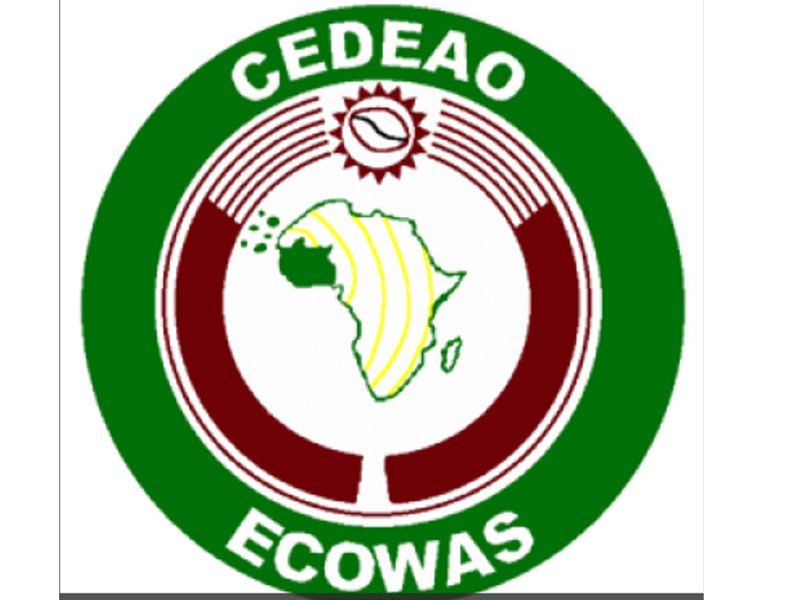The three military regimes of Mali, Burkina Faso and Niger republics that conspired together, coup style, to announce a withdrawal of their respective countries from the regional integration body, Economic Community of West African States (ECOWAS), lack the constitutional or legal authority to do so. They all came to power by overthrowing the constitutional order of their countries, an action not recognised in the modern world by either ECOWAS or the African Union.
The ECOWAS was voluntarily acceded to by constitutional authorities in their respective countries, ratified by their countries’ parliaments and upheld by their countries for half a century.
Quite alright, nations can withdraw from international agreements and from regional bodies such as ECOWAS, but they must do so under terms and procedures already agreed to in the treaty. Otherwise, there will be chaos if any country can wake up and tear a treaty voluntarily entered into with other countries.
Apart from the treaty on regional integration, there are many bilateral agreements entered into by West African nations with one another, be they trade, security, culture, border, sports etc. if things are done with this kind of arbitrariness, what is to prevent other countries from dumping agreements at will?
When the United Kingdom wanted to withdraw from the European Union, for example, the British government first held a referendum in which its citizens voted on the question. This was preceded by a long campaign in which both those who wanted “Brexit” and those who opposed it laid their case before the voters. Besides, it had nothing to do with whether anyone wanted to perpetuate himself in power or not.
It was about the benefits as well as the lack of benefits for their country to remain in the EU. Even after voters approved Brexit in the referendum, a protracted process followed in which Britain fulfilled all the conditions for withdrawal from the treaty and also negotiated with its partners issues that arose from the separation.
Not so Mali, Burkina Faso and Niger Republic. There was no consultation at all with citizens, who are the ones that will bear the brunt if regional integration ties are severed with their neighbours. They are the ones who will not be able to move freely across borders and who will not be able to move their goods to markets across borders. When a problem arises of shortage of food and supplies due to the disruption caused by a withdrawal from ECOWAS, it is the ordinary people who will suffer the consequences.
Many citizens of these countries also have relatives that live across the border in neighbouring countries and they will suffer greatly if they are unable to visit them, using ECOWAS’ free movement principle. Yet they were not consulted at all before this rash decision was made, overnight, without following the laid down procedure for withdrawal.
Of course, it is understandable why the military juntas will never consult their people on this matter. It is because, in contrast to the British reasons for Brexit, this one is purely selfish, namely the soldiers’ desire to continue to rule their countries unconstitutionally and to refuse the wise advice of their regional neighbours and friends to move towards a peaceful restoration of constitutional rule in their countries.
There is no other reason why Niger Republic, for instance, is in league with Mali instead of with Nigeria, or why Burkina Faso is in league with Mali instead of with Ghana or Cote D’Ivoire, apart from this selfish desire of military men to maintain their hold on power illegally. To be able to do so, they are ready to jeopardise the welfare of their people and the future of their countries by severing ties with their neighbours, ties that have proved to be very useful over half a century.
A lot of the socio-economic and infrastructural progress achieved in West Africa in the last 50 years, not to mention peaceful coexistence and brotherly relations between our peoples, was achieved through the agency of ECOWAS.
Still, it is wise of ECOWAS leaders that they have shown patience and have kept the doors open for the recalcitrant brothers to retrace their steps and seek reintegration in ECOWAS. It is in their countries’ short, medium and long-term interest to do so.
Africa as a whole, and West Africa in particular, is already weak in the international scheme of schemes. To improve its bargaining position internationally, countries of the region must stick together. Indeed, our desire is to seek an Africa-wide integration as soon as possible. How does it look, that some countries are withdrawing from ECOWAS, not to any sober reflection and assessment of Africa’s position, but in order to hand on to power?
The negotiating committee of three Heads of State set up by ECOWAS leaders at their last meeting in Abuja in December should ignore this distraction and should continue with its mission to find an amicable resolution of this disagreement between friendly neighbours.
Prof. Ogunyemi, a former Foreign Service officer, is of the Centre for Peace and Regional Cooperation, Abuja

 Join Daily Trust WhatsApp Community For Quick Access To News and Happenings Around You.
Join Daily Trust WhatsApp Community For Quick Access To News and Happenings Around You.


